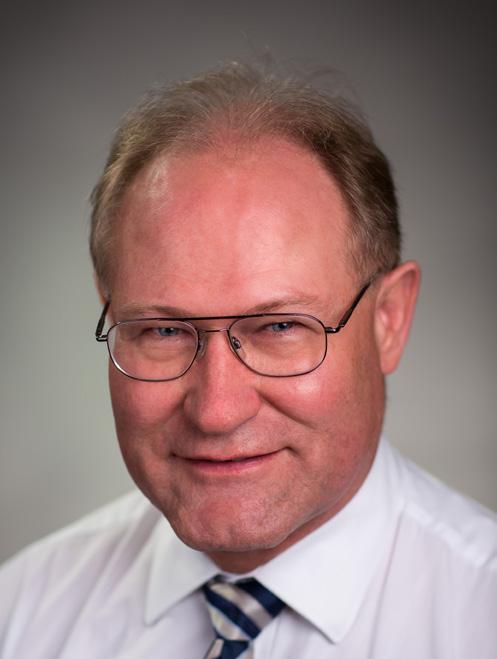
16 minute read
Education and Training


Advertisement



Education and Training MINISTERIAL BRIEFING NOTE
ORGANISATION
DELEGATION CONTACT
DELEGATES ATTENDING
DELEGATE ISSUES
WEBSITE LINKS
ATTACHMENTS Cairns TNQ Convoy to CapitalQ
Advance Cairns, Tourism Tropical North Queensland and Cairns Chamber of Commerce are leading the region’s largest ever business delegation to Brisbane. The delegation includes more than 50 business leaders over a two-day period (February 18-19), representing 12 key business sectors to meet with State MPs and attend the Speaker’s Cocktail Reception.
Further information: Nick Trompf, Executive Chairman Advance Cairns E: nicktrompf@advancecairns.com | M: 0412 786 719
Education and Training:
Professor Sandra Harding AO
1. Sandra Harding AO, Vice Chancellor & President James Cook University & Director Advance Cairns 2. Jodie Duignan-George, Associate Vice-Chancellor Cairns & Far North Region for CQUniversity & Director Advance Cairns 3. Jo Pyne, Chief Academic Officer TAFE Queensland 4. Janine Bowmaker, President Study Cairns and Managing Director Banora International 5. Bill Dixon, Executive Director Catholic Education Service (Diocese of Cairns)
Attached are bios on each delegate.
Education and Training issues to discuss:
• Education and Research Sector • Apprentice Training
Attached are briefing papers on each issue.
• Attendee biographies • Briefing papers

Professor Sandra Harding, Officer of the Order of Australia, took up her appointment as Vice Chancellor and President of James Cook University Australia in January 2007. In this role, she is responsible for ensuring clear and effective leadership and management of the University across all operating sites, including campuses in Cairns, Singapore and Townsville.
Educated at the Australian National University, The University of Queensland and North Carolina State University (USA), Professor Harding has extensive academic and academic leadership experience. An economic sociologist by training, her areas of enduring academic interest include work , organisation and markets and how they work. She also has a keen interest in public policy in two key areas: education policy and related areas; and; the global Tropics, northern Australia and economic development.
In January 2019, Professor Harding was appointed an Officer in the General Division of the Order of Australia in the Australia Day 2019 honours list for her distinguished service to education at the national and international level, and to the community of Queensland.

Jodie Duignan-George is the foundation Associate Vice-Chancellor for the Cairns and Far North Region of CQUniversity.
With a 20+ year career in higher education, Jodie has a strong understanding of the issues facing the sector, particularly from a regional university perspective. Her interests, however, extend beyond higher education to include regional development more broadly. She is an engagement specialist and a strategic thinker who collaborates across boundaries to achieve mutually beneficial outcomes for stakeholders.
Jodie is an active member of her community, serving on the Management Committees of Study Cairns and Cairns Chamber of Commerce (as Vice President). Jodie is also a Director on the Board of Advance Cairns (locally) and the Company Secretary of Engagement Australia (nationally).
She also serves on local and state government committees and is a member of the board of RDA FNQ&TS.
Joann Pyne is the Chief Academic Officer of TAFE Queensland. TAFE Queensland is the largest, most experienced training provider in the state, with more than 500 nationally-recognised qualifications to choose from across 50 locations across the state, and a variety of study modes available.

As the Chief Academic Officer, Joann leads the academic governance processes of TAFE Queensland and chairs the TAFE Queensland Academic Board. Prior to this role, Joann was the General Manager of TAFE Queensland North Region.
For the past two decades, Joann has been instrumental in developing a range of programs that have received awards and accolades for their innovative approach, unique and successful partnerships and their responsiveness to business, industry and community. She is passionate about TAFE being an active and high quality learning organisation that students, employers, industry and employees are proud to be associated with.
Prior to joining the TAFE Queensland team, Joann worked in a variety of roles in both local and federal governments.

Janine is the President of Study Cairns and has lived and breathed study tourism and international education her entire life. Having travelled, studied and lived throughout the world, she found her passion for international education and tourism at an early age, establishing Banora International Group in 1996. Since then, she and her equally passionate team have developed several other divisions and unique programs which strive to educate in and out of the classroom though experiential learning, cultural immersion and edutourism.
In addition to her voluntary role with Study Cairns, Janine sits on several tourism boards, and is regularly invited to speak on edutourism at various forums nationally. Her desire is to improve the quality of services made available to international students and increase their future opportunities.

Bill Dixon is the Executive Director of Catholic Education Services – Diocese of Cairns. Catholic Education in the Diocese of Cairns operates 29 schools and colleges with an enrollment of almost 11,5000 students and is one of the region’s largest non-government employers with 2000 staff. The overall annual budget for Catholic Education in the Diocese of Cairns is approaching $250 million.
Bill is also a past Chair of the Queensland Chapter of The Association for Learning Environments Australasia and is currently the Secretary of the Australasian Chapter of The Association for Learning Environments based in Melbourne. In addition, he is a Board member and Chair of the Audit and Risk Committee for CENET, a NSW based company that provides internet and technology services to over 700 schools in the eastern states of Australia.
He previously was employed as the Manager, Capital Programs for the Queensland Catholic Education Commission based in Brisbane as well as representing the Executive Director on the Queensland Schools Planning Commission.
COUNCIL: CAIRNS STATE ELECTORATE: CAIRNS FEDERAL ELECTORATES: LEICHHARDT ENABLING INFRASTRUCTURE
EDUCATION AND RESEARCH
BRIEFING NOTE SUMMARY
• Tropical North Queensland has a dynamic and vibrant education sector that includes two universities, six TAFE campuses, 35 secondary schools, and a number of private language and business schools.
• Youth unemployment currently sits at 9.3% and the region faces a skills shortage in areas related to health, allied health, aviation and a number of other STEAM professions.
• To address regional skill gaps four key projects have been identified: $35 million for Queensland’s first Comprehensive University High School, $45 million for stages 2 and 3 of CQUniversity’s Asia Pacific Aviation Hub, $50 million for a permanent new CQUniversity campus in the Cairns CBD, and $26.7 million recurrent for Commonwealth Supported Places.

THE ISSUE Tropical North Queensland (TNQ) has a dynamic and vibrant education sector that includes two universities, six TAFE campuses, 35 secondary schools, and a number of private language and business schools. Nearly 13,000 people are employed in education and training in TNQ, accounting for 5.2% of the State education workforce and contributing $1.1B to the economy. However, the region is shifting towards a knowledge-based economy which has implications for educators and regional training facilities. To accommodate the shift, the sector has invested hundreds of millions of dollars in infrastructure in recent years, and a number of additional projects are flagged for investment. With a strong student base now established, CQUniversity and James Cook University (JCU) are experiencing rapid growth in the Cairns region. Through collaborative partnerships, to address current gaps in education pathways the two universities are working to build capacity across a range of industries and community initiatives. In 2017 CQUniversity released a community impact plan consisting of six primary projects. Most of the projects in the 2017 plan were completed to varying degrees by the end of 2018, requiring the development of an updated CQUniversity 2019 Cairns Community Impact Plan which includes:
2020 STATE ELECTION PRIORITIES FOR TNQ • Queensland’s first comprehensive University High School ($35 million) • Stage 2 and 3 CQUniversity Asia Pacific Aviation Hub ($45 million) • Permanent new CQUniversity Cairns CBD campus ($50 million) Based within JCU’s Division of Tropical Health and Medicine, JCU proposes to establish a Tropical Global Health Centre to produce research-enabled clinicians with extensive clinical training in population health and global public policy. The Centre will leverage investment in the Cairns University Hospital to provide students with globally relevant training and deliver a medical workforce specifically prepared to handle regional health challenges. Although initially focused on the medical workforce, the program will subsequently expand to include nursing, dentistry, allied health, pharmacy and veterinary health professionals.
BACKGROUND The TNQ region has an estimated resident population of 278,080 and population growth of 1.1% per annum. The attainment of a university degree in Cairns is 54% lower than the national average at 14.3%, while 8.5% of residents have an Advanced Diploma or Diploma and 22.9% have a Vocational certificate, on par with the rest of the State.
Annual trend employment sits at 4.1% however over the past 12 months, most of this employment has occurred within the 25-44 year age group, leaving youth unemployment (15-24 years) at a much higher estimated 9.3%. While Cairns has two universities, access to appropriate courses and pathways into University are critical in bridging the high youth unemployment rate and encouraging young people to enter the workforce. Nationally over the next 5 years, an additional 85,000 health workers and 28,000 educators will be needed to fill jobs in regional areas. To fill this need, the importance of regional universities cannot be overstated with more than 55% of employed regional university graduates remaining in regional areas on completion of their studies.
NEXT STEPS In addressing youth unemployment and preparing the region’s workforce for the future, the following four projects have been identified as essential enablers. 1. To establish Queensland’s first Comprehensive University High School, Cairns State High School and CQUniversity seek $35 million in funding. The funding will deliver new teaching facilities and university education offerings at Cairns State High School, delivering education pathways and employment pipelines at fundamental levels. As a Queensland first, the school will focus on the Sciences, Aerospace, Engineering, and Performing Arts disciplines, supporting the government’s STEAM agenda and encouraging more young people into areas of critical workforce need.

2. CQUniversity seeks $50 million to establish a permanent, purpose-built CBD campus capable of accommodating 2,500+ students. The new, permanent campus will deliver an expanded range of training, education and research offerings that will diversify and grow the local economy and skilled workforce, while stimulating greater international student numbers in the CBD. This will cement CQUniversity’s presence in Cairns with a permanent CBD campus capable of absorbing forecast student growth, while galvanising Cairns’ identity as an agile, innovative two-university city. 3. CQUniversity seeks $45 million for the second ($10 million) and third ($35 million) stages of its ambitious Asia-Pacific Aviation Hub. This funding will secure a second hanger at the Cairns International Airport, new laboratory facilities including specialist space for Aviation Accidents Forensics, new flight simulators including a high-fidelity, world class flight simulator capable of attracting global commercial flight training business, and the roll-out of new aviation courses; Bachelor of Accident Forensics, Bachelor of Airline and Airport Management, Bachelor of Airworthiness, and Aviation Masters and Research Programs. 4. To support the training and recruitment of Cairns-based clinicians, JCU requires an additional 50 Commonwealth Supported Places (CSP) and 30 international places recurrent for the JCU Bachelor of Medicine, Bachelor of Surgery (MBBS) program. This will allow JCU to offer Years 1-6 of the MBBS in Cairns and Mackay. The additional places will be distributed across the regional centres of Cairns (30), Mackay (10) and Townsville (40).
OUR RECOMMENDATION
• That the State Government invest $35 million in 2020-2021 to action
• the Comprehensive University High School, with a further $10 million in 2021-2022 for Stage 2 of the CQUniversity AsiaPacific Aviation Hub and $50 million in 2022-2023 for the CQUniversity CBD Campus, to collectively address skill gaps and unemployment in Tropical North Queensland.
• That the Federal Government invest $35 million in 2022-2023 to progress Stage 3 of the CQUniversity Asia-Pacific Aviation Hub, positioning Cairns as a world-class leader in aviation training.
• That to support the training of a regional medical workforce, the Federal Government allocate an additional 50 Commonwealth Supported Places and 30 International places recurrent, together with an allocation of Destination Australia scholarships to JCU’s School of Medicine and Dentistry.
RECOMMENDED INVESTMENT
Estimated project cost $130m
State Investment Federal Investment 2020-2021 2021-2022 2022-2023
University High School $35m
Asia-Pacific Aviation Hub CQUniversity CBD Campus Asia-Pacific Aviation Hub $10m $50m -
COUNCIL: CAIRNS STATE ELECTORATE: CAIRNS FEDERAL ELECTORATES: LEICHHARDT ENABLING INFRASTRUCTURE
SKILLS AND TRAINING
BRIEFING NOTE SUMMARY
• Over the past five years, there have been growing signs of worker shortages in many parts of Tropical North Queensland (TNQ) and the ability for business to employ and train apprentices is becoming more difficult.
• Like all regions in Australia, youth unemployment in Cairns and TNQ is an ongoing concern and employers and businesses are keen to see local people trained to fill these skill shortage areas.
• To assist our young people in gaining employment as an apprentice or trainee, and to increase the completion rates of apprenticeships, we need to trial an institution-based approach to year one of an apprenticeship.

THE ISSUE Over the past five years, there have been growing signs of worker shortages in many parts of Tropical North Queensland (TNQ). As at September 2019, there were 7629 advertised job vacancies in Queensland. The majority of vacancies were for skilled workers such as medical practitioners, nurses, engineers and automotive technicians but a large number of low skilled labouring jobs were also on offer. In August last year, the Queensland Government identified 139 potential future skills shortages in traditional, but rapidly changing professions. These included electrical works, plumbing, engineering, healthcare, hospitality, early childhood, digital technologies, robotics and utilities. The introduction of free apprenticeships has provided a boost to these occupations. In addition, in September 2019 the TNQ region became a Designated Area Migration Region, with the resulting DAMA now open for businesses and employers to sponsor skilled migrants in the Cassowary Coast, Atherton Tablelands, Mareeba, Cairns and the Douglas Shire districts through the Cairns Chamber of Commerce. This program addresses many critical skill shortage areas and provides short term solutions to businesses. However, like all regions in Australia, youth unemployment is an ongoing concern and employers and businesses are keen to see local people trained to fill these skill shortage areas.
BACKGROUND The ability for business to employ and train apprentices is becoming more difficult. For example, engineering companies report that many large projects are importing steel from overseas. This reduces the variety of work that an apprentice can experience. In some cases, not all essential tasks can be covered during a four-year apprenticeship. For construction workers, the rise in the use of sub-contractors on major projects promotes a feast or famine culture that is not conducive to the employment of apprentices on four-year contracts. Various increased financial incentives from the State and Federal Governments have reduced the direct cost of employing apprentices, but do not address the indirect costs, that is the supervision and management of new apprentices, particularly in the first year. In the first year, the basic skills of the trade are taught, and the apprentice is a cost to the business and does not contribute to the productivity of the enterprise. Research from the National Centre for Vocational Education Research (NCVER) has found that, for students both at school and not at school, a pre-apprenticeship roughly doubles their chances of obtaining an apprenticeship. ¹ “Prospective workers need solid foundational skills and they need to be fully informed and prepared before commencing an apprenticeship or traineeship. While a degree of cancellation is inevitable, the more opportunity a person has to experience the industry before starting an apprenticeship or traineeship, the
more likely they will complete and go on to further career development. Fundamental to the apprenticeship and traineeship system in Queensland is the prerequisite knowledge base to enter and progress within the system. The foundation skills of literacy, numeracy and digital proficiency are the essential building blocks to either enter or complete a trade apprenticeship and to become a successful tradesperson”. ² School-based apprenticeships and traineeships (SATs) are generally very well regarded and work best when there are strong networks between schools and industry. The School Tech program at TAFE North, Cairns campus is an alternative high school program delivered through a partnership between TAFE Queensland Cairns campus, the Great Barrier Reef International Marine College, Woree State High School, and Skill360 Australia. Students complete Year 11 and 12 and also study two certificate programs. The aim is to transition students into School-Based Apprenticeships as quickly as possible. By the end of Year 12 students have had an equivalent amount of work placement as a first-year apprentice.
NEXT STEPS NCVER has identified a continuing slow reduction in the number of apprentices being indentured. This trend is consistent across Queensland and the nation. Currently, most pre-apprenticeship programs are around 3-6 months long and graduates leave with a small number of competencies and some

simulated work experience. These short courses do not provide the time to introduce any significant delivery of foundation skills, including digital literacy. Many programs include job placements allowing employers and apprentices to test their “fit” for the commencement of an apprenticeship. From anecdotal feedback, getting the match between employer and apprentice right is critical to a successful outcome. So while they are successful in matching workers to employers, and providing some basic skills, they do not significantly reduce the workload on training apprenitces on the job in the first year, where we know the load is the greatest for employers. They also have minimal impact on foundation skills, which sometimes become critical in the 2nd and 3rd year of an apprenticeship when tasks become more complex. To assist our young people in gaining employment as an apprentice or trainee, and to increase the completion rates of apprenticeships, we need to trial an institution-based approach to year one of an apprenticeship. A one year program should include a focus on foundational skills (including digital literacy). The program should also include significant work placements in a variety of enterprises, and in a simulated environment to ensure students obtain the skills they need to operate effectively as a second-year apprentice.
OUR RECOMMENDATION
• To assist our young people in gaining employment as an apprentice or trainee, and to increase the completion rates of apprenticeships, we need to trial an institutionbased approach to year one of an apprenticeship.
• A one year program should include a focus on foundational skills (including digital literacy). The program should also include significant work placements in a variety of enterprises, and in a simulated environment to ensure students obtain the skills they need to operate effectively as a second-year apprentice.
Sources: 1. https://www.ncver.edu.au/ research-and-statistics/publications/all-publications/the-effect-of-a-pre-apprenticeship-on-getting-an-apprenticeship 2. Motor Trades Association of Queensland submission to Positive Futures: Apprenticeships and Traineeships in Queensland Report to the Minister for Training and Skills June 2017 3. https://www.ncver.edu.au/__data/ assets/pdf_file/0034/8252809/Aand-T_June-QTR-2019_QLD.pdf









